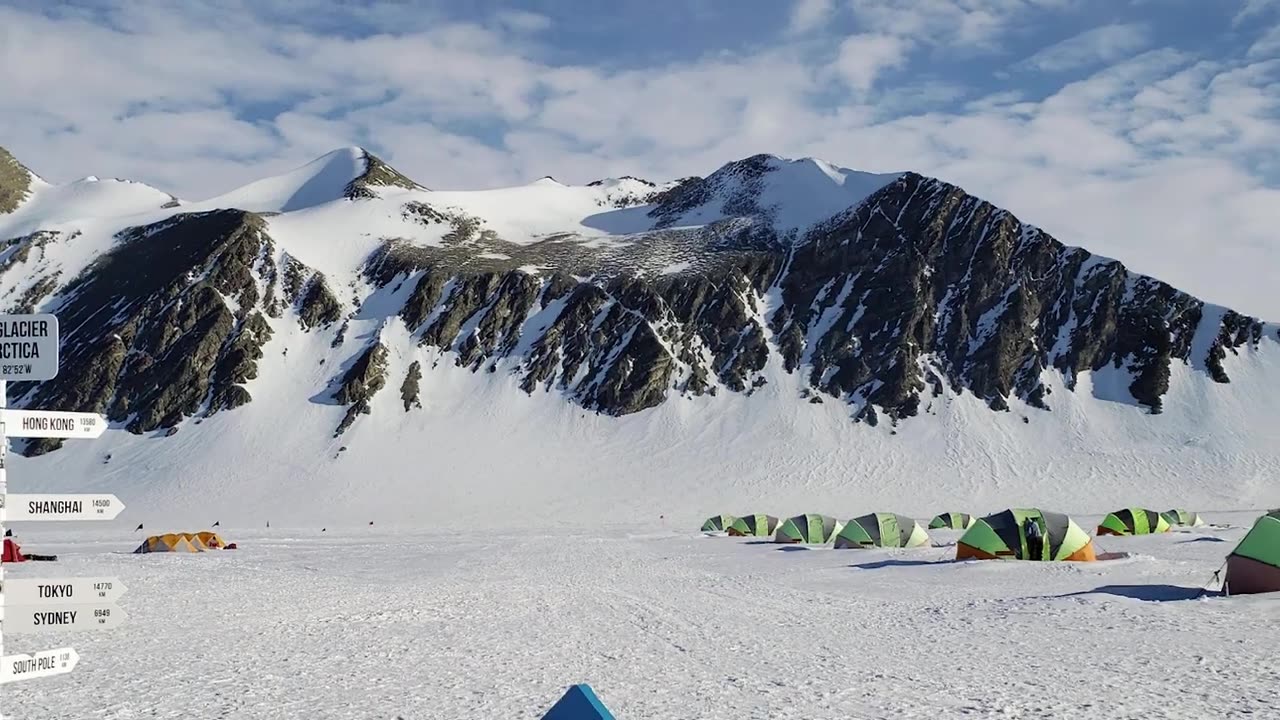Premium Only Content

10 discoveries in Antarctic that scares scientists
While Antarctica is known for its stunning natural beauty and scientific discoveries, some findings have raised concerns among scientists due to their potential implications for the environment and climate. Here are descriptions of ten discoveries in Antarctica that have caused unease among researchers:
Rapid Ice Shelf Thinning: Scientists have observed accelerated thinning of Antarctica's ice shelves, particularly in West Antarctica. This raises concerns about rising sea levels and their impact on coastal regions worldwide.
Massive Iceberg Breaks: The break-off of massive icebergs from ice shelves, such as the Larsen C Ice Shelf, has scientists worried about destabilizing ice structures and contributing to sea-level rise.Subglacial Lakes: Discovery of subglacial lakes beneath Antarctica's ice sheets has raised concerns about the potential release of ancient, isolated microbes and their impact on the ecosystem.
Ice Melt Feedback Loops: Researchers are concerned about the possibility of ice melt feedback loops, where warming ocean water melts ice, which, in turn, leads to further warming and ice loss.
Warming Ocean Waters: The warming of the Southern Ocean around Antarctica is causing the disintegration of ice shelves and glaciers, contributing to sea-level rise and altering ecosystems.
Antarctic Methane: The discovery of methane hydrates beneath the Antarctic seafloor has raised questions about the release of this potent greenhouse gas as ice melts.Antarctic Microplastics: Scientists have found microplastics in Antarctica, even in remote areas. This highlights the global reach of plastic pollution and its environmental impact.
Glacial Isostatic Adjustment: The rebound of land masses previously compressed by ice sheets is affecting local sea-level changes, which could have unforeseen consequences for coastal communities.
Antarctic Ecosystem Shifts: Changes in the distribution and behavior of Antarctic wildlife, such as penguins and krill, are concerning for researchers studying the effects of climate change on ecosystems.Potential Tipping Points: Scientists worry that certain thresholds, or tipping points, may exist in the Antarctic system, leading to abrupt and irreversible changes in ice melt rates and sea-level rise.
These discoveries underscore the complex and interconnected nature of Antarctica's environment and its vulnerability to climate change. Scientists continue to study the region intensively to better understand its role in the Earth's climate system and the potential impacts of its changing conditions.
-
 LIVE
LIVE
Tucker Carlson
29 minutes agoMother of Likely Murdered OpenAI Whistleblower Reveals All, Calls for Investigation of Sam Altman
5,947 watching -
 1:43:00
1:43:00
Redacted News
3 hours agoBREAKING! CAPITOL POLICE ON HIGH ALERT OVER ATTEMPTS AGAINST TRUMP, MEDIA SILENT | Redacted
63.3K96 -
 51:09
51:09
Candace Show Podcast
2 hours agoHILARIOUS! TikTok Ban Backfires | Candace Ep 133
50.7K87 -
 LIVE
LIVE
Dr Disrespect
7 hours ago🔴LIVE - DR DISRESPECT - WARZONE - NO MERCY
3,327 watching -
 LIVE
LIVE
Mally_Mouse
48 minutes agoLet's Hang!! -- P.O.Box opening! & Stardew Valley pt. 20!
294 watching -
 LIVE
LIVE
The Amber May Show
2 hours agoDeep Dive On The California Fires | Gulf of 'Merica | Alan Sanders
221 watching -
 5:32
5:32
Rethinking the Dollar
6 hours agoHolding 0.001 Bitcoin Could Make You a Millionaire – Here’s Why You’re the Elite
2.5K6 -
 14:23
14:23
Degenerate Jay
8 hours ago $0.05 earnedThe Arkham Batman Is Alive - The Suicide Squad Game Is Dead
1.95K -
 1:06:50
1:06:50
PMG
20 hours ago $0.61 earned"Never trust a government that leads you into the apocalypse"
9.5K3 -
 1:05:15
1:05:15
In The Litter Box w/ Jewels & Catturd
23 hours agoExternal Revenue Service | In the Litter Box w/ Jewels & Catturd – Ep. 720 – 1/15/2025
45.8K25